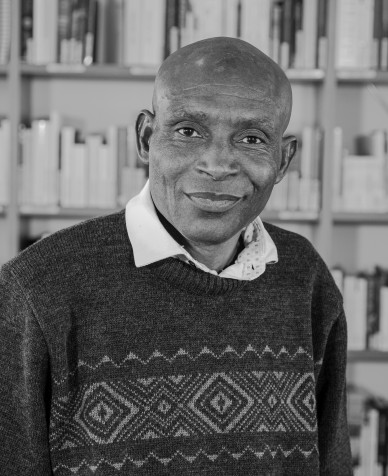Fellows

Joseph Jules SINANG
Fellowship : October 2023 to june 2024
Discipline(s) : History
Pays : Cameroon
Research project: Slavery in Central African forest-dwelling societies: Definitions, issues and legacies
This research, which focuses on Central Africa, analyses the place and impact of slavery in forest-dwelling societies, which are described as egalitarian by ethnologists. Based on empirical data collected in lineage societies in south-eastern Cameroon, north-western Congo, southern Gabon and western Central African Republic (CAR), it deciphers, through a qualitative and comparative approach, the particular nature of this slavery, which is not only economically based but also ideologically, culturally and politically motivated. It thus addresses the modalities of this slavery, its mutations, its decline, its legacies as well as its contemporary nature. This makes it possible to reassess the representations inherited from the first research on slavery in Africa, which was dominated by Marxist historiography, and to better tackle the roots of certain social inequalities found in this part of the continent.
Biography
Joseph Jules Sinang is of Cameroonian nationality. He is a teacher-researcher in the History Department of the Faculty of Arts, Letters and Humanities at the University of Yaoundé 1, where he defended his PhD thesis in 2016, in which he analysed the management of wildlife resources in the northern Congo Basin over the long term. The question of contemporary forms of enslavement, and in particular bonded labour in Central Africa, is one of the central elements of his current work. He has thus contributed to several international meetings dedicated to this issue, such as the international conference on "Slavery in Africa: history, legacies and current events" 27-29 October 2014 at the Catholic University of East Africa in Nairobi, the one organised at the University Paul Valery Montpellier 3, 1-2 December 2016 on the theme "Traces and memories of slavery in the Atlantic area", the international conference on "Slavery in Africa: Savoirs et décloisonnement", which he co-organised at the University of Yaoundé 1 from 19 to 21 April 2022, and the conference on "Les recherches sur l’esclavage dans le monde: un état des lieux" held in Dakar from 6 to 8 November 2022.
Since 2017, Joseph Jules Sinang has been actively involved in numerous research networks on slavery, such as the European programme SLAFNET: Slavery in Africa: A Dialogue between Europe and Africa" (H2017-2023, Rise programme), the SLAMARANET projects: Slavery, Mémory and Race in Colonial and Postcolonial world (CNRS / IRN 2020-2024) and AFRAB: African Abolitionism: Rise and Transformations of the Anti-Slavery Struggle in Africa ( ERC H2020-EU. 2020-2025 ).
Bibliography
BIGOMBE LOGO, Patrice et SINANG. Jospeh Jules, Les Figures marquantes de l’Histoire à l’Est Cameroun (1882-1982) : Notables et Hauts commis de l’Etat, Yaoundé : Presses de l’Université Catholique d’Afrique centrale (PUCAC), 2023, 398p.
SINANG, Jospeh Jules. « Travail et servitude des pygmées au Sud-est Cameroun », Ballarin MP et Boyer-Rossol K, Les Esclavages en Afrique, Paris : Karthala, Ciresc, (sous presse), PP.399-412.
SINANG, Jospeh Jules. « Les rivalités coloniales entre la France et l’Allemagne au Sud-est Cameroun (1889-1915) ». Les cahiers de l’ACAREF, revue de l’Académie Africaine de Recherches et d’Etudes Francophones, Tome 2-Vol.4-N°9-Juin 2022, pp285-308.
SINANG, Jospeh Jules. « De l’oubli à la valorisation de la mémoire de l’esclavage et des traites négrières au Cameroun post colonial » in Lawrence Ajie et Nicolas Gachon (eds.), La mémoire de l’esclavage, Traces mémorielles de l’esclavage et des traites dans l’espace atlantique. Paris : L’Harmattan, 2018, pp 51-77.
SINANG, Jospeh Jules. « Le Chef Mbartoua à l’Est-Cameroun, 1870-1884 : une figure esclavagiste méconnue » in Idrissou Alioum & Nadine Carole Ngon (eds.), Esclavage et traites négrières en Afrique centrale : histoire, mémoires et héritages, Perspectives pluridisciplinaires. Douala : Africaavenir dialogues et échanges, 2018, pp. 37-52.

